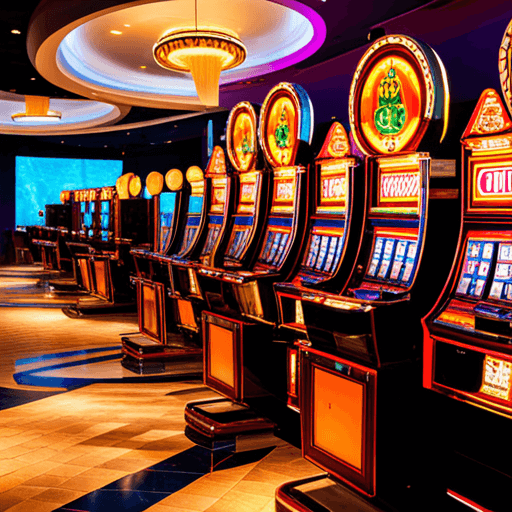Analyzing the Morality of Gaming Gaming

Casino gaming has long been a topic of interest and debate, drawing in millions of players around the world. With a blend of chance, strategy, and the excitement of risk, casino games offer an exciting escape from everyday life. However, as entertainment becomes ever more accessible, it calls for a more thorough examination of the ethical implications surrounding these games.
At the heart of the debate lies the issue of whether casinos promote safe gambling or take advantage of vulnerable individuals. The allure of potential winnings versus the reality of losses can create a challenging situation, and understanding this balance is crucial for both players and operators. As we delve into the morals of casino gaming, we will explore the duties of casinos, the effects on society, and the measures that can be taken to foster a better gaming environment.
The Impact of Casino Gaming on Society
Gambling in casinos has a notable influence on societal dynamics, affecting not only the financial landscape but also interpersonal dynamics and local frameworks. The funds generated from casinos can lead to job creation and boost local economies, as they provide multiple employment opportunities in multiple fields including hospitality, leisure activities, and shopping. However, while the financial benefits can be significant, communities often grapple with the potential negative impacts that arise from increased gambling activity.
Additionally, the presence of casinos can lead to an rise in gambling addiction, presenting serious challenges for players and families. The thrill of casino games can quickly transform into a compulsive habit, affecting personal relationships and leading to financial instability. Many individuals may find it difficult with the loss of control over their gambling habits, resulting in a need for assistance programs and help to address this increasing issue. The social cost of addiction can extend through families and neighborhoods, creating an urgent need for sensible gambling approaches.
In addition to the economic and social ramifications, casino gaming often showcases cultural attitudes towards risk and leisure. It can encourage a sense of excitement and leisure, attracting tourists and boosting tourism. However, this allure may also conceal the wider implications of gambling as a method of entertainment, raising ethical questions about its promotion and accessibility. As communities weigh the benefits and drawbacks of casino gaming, the need for sensible approaches and oversight becomes increasingly critical in ensuring that the positive aspects are maximized while reducing the potential harms.
Moral Issues in Gambling Activities
The ethics of gambling operations often center around the risk for dependency and its consequences on people and households. Gambling can lead to serious financial distress, impacting not only the betters but also their families. As individuals become caught in the allure of winning, many lose track of their financial limits, which can result in devastating results such as insolvency. This raises ethical questions about the responsibility of casinos in promoting responsible gaming practices and providing support for those who may be dealing with gambling addiction.
Another major concern is the advertising of gambling to at-risk populations. Gambling establishments often aim at low-income individuals or neighborhoods with the offer of quick gains, which can perpetuate patterns of poverty and despair. In this context, the morality of marketing strategies used by gambling establishments come under scrutiny, as they may exploit the need of individuals seeking an escape from financial hardships. free spins no deposit not on GamStop This exploitation raises ethical questions about the honesty of the betting industry and its responsibility to safeguard its most at-risk patrons.
Additionally, the impact of gambling operations on the community as a entirety cannot be ignored. While some argue that gambling establishments create jobs and stimulate local economies, others point to the social costs associated with dysfunctional gambling, increased criminal rates, and a burden on public services. Balancing economic benefits with the potential for community issues presents a complex moral dilemma for lawmakers and casino operators alike. The difficulty lies in discovering a responsible approach that takes into account the well-being of people and communities while still allowing for the enjoyment of gambling activities.
Regulation Framework and Duties
The regulatory system surrounding gaming activities is designed to ensure equity, honesty, and participant safety. Different government entities and casino commissions establish and enforce regulations that dictate how casino activities operate, the criteria for product development, and the protocols for handling rewards. These regulations change by locale but usually involve licensing requirements for providers and strict measures to avoid deception and scams.
In addition to regulatory bodies, gaming operators bear major accountability in preserving principled standards within their venues. They must implement responsible gambling practices that promote player safety and consciousness, including offering self-exclusion options and offering information about the hazards related to betting. Operators are also obligated for instructing workers to recognize signs of compulsive gaming and be aware of the correct steps to support customers in trouble.
Furthermore, openness in casino operations is crucial for earning and maintaining public confidence. Operators should present clear data about the probabilities of operations, promotional offers, and any connected hazards. By creating an atmosphere of honesty and trust, operators can help lessen the likelihood adverse impact of gambling while improving the general gambling experience for all participants.
